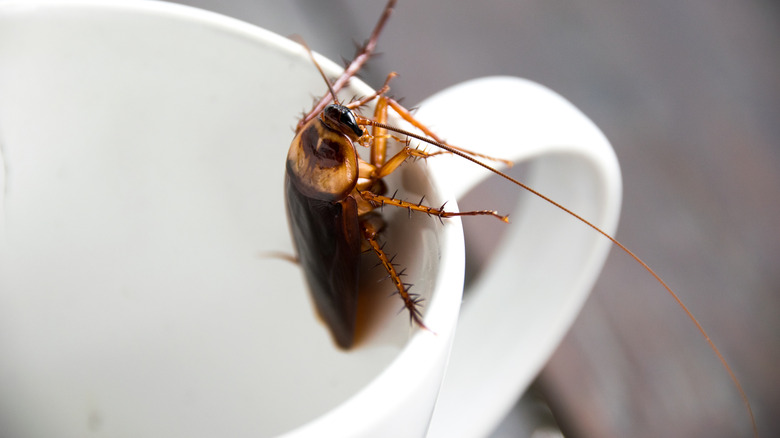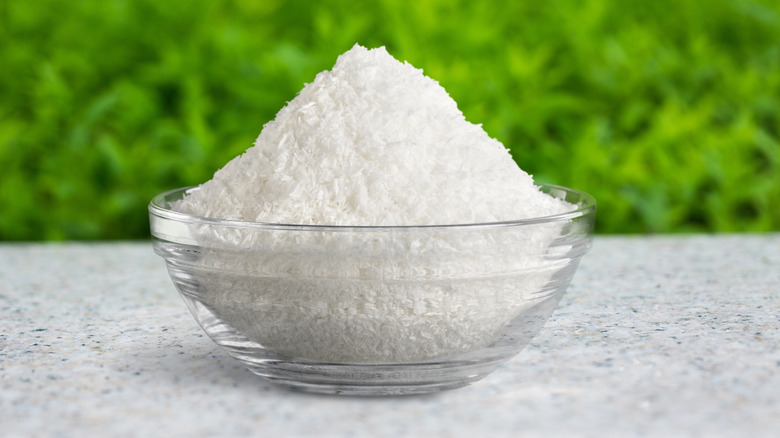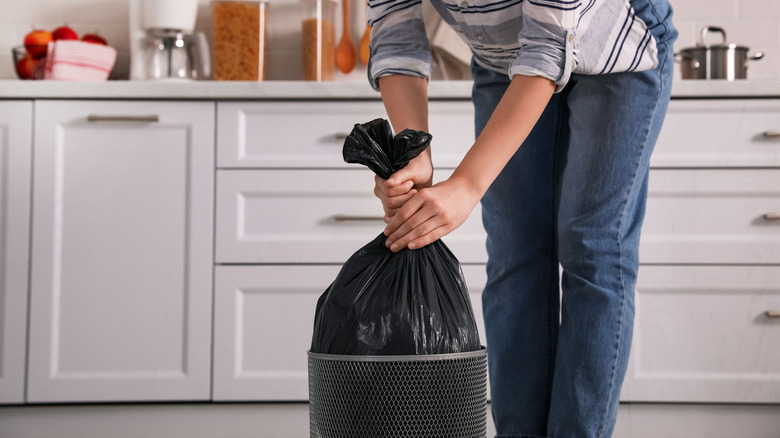Will Epsom Salt Really Keep Your Home Cockroach-Free?
Cockroaches might not be anyone's favorite houseguest, but they actually play a useful role in nature. When they munch dead plants and other rotting organic material, they release nitrogen through their droppings, which mixes into the soil and gives plants a nice nutrient boost they can easily absorb. That said, most of us would rather admire their environmental contributions in a David Attenborough documentary — if at all. So when a supposedly effective DIY pest control hack starts making the rounds online, it's tempting to try it. Especially when it's as simple as using Epsom salt, something most of us already have on hand. But will it really keep your home cockroach-free? Short answer: Not exactly.
While it might create a mild deterrent in some cases, Epsom salt isn't a reliable or proven way to get rid of cockroaches. Still, that hasn't stopped people from trying. Some swear by sprinkling it around entry points, while others pair it with cloves or lavender for extra effect. But how much of this actually holds up? Before you raid your bathroom, here's what you should know about how (or if) it actually works.
How the Epsom salt hack might help oust cockroaches
Some people claim that mixing Epsom salt (magnesium sulfate) and cloves works as a natural roach repellent. Others aren't convinced, pointing out that there's no scientific evidence to back it up. One naysayer did concede that a solution made from one part Epsom salt dissolved in four parts hot water might have some effect. To try it, you'll need to shake the bottle well and spray it in infested areas or directly onto any roaches you spot. The theory is that the solution could irritate or dehydrate baby roaches, possibly harming them or encouraging them to avoid treated spots.
But even then, the effect is pretty limited. Adult cockroaches, with their tougher exoskeletons and survival superpowers, aren't likely to be fazed by your eco-friendly attempts at getting rid of them. And while the salt itself isn't harmful to people or pets, relying on this method alone won't do much against a serious infestation. In short: it might offer a little help, but Epsom salt spray is more of a mild deterrent than a reliable roach killer. If your home has turned into a cockroach HQ, it's best to call in pest control professionals. After that, you can focus on how to keep them away for good.
Better ways to deter cockroaches — and where Epsom salt actually helps
The best way to avoid a cockroach problem is to make your home and garden as unappealing to them as possible. That means keeping things clean: don't leave food out, seal pantry items, wipe down counters, and take out the trash regularly. Outside, clear away fallen fruit, rotting wood, and standing water — all of which can attract pests and give them a cozy place to hide. For a longer-lasting natural deterrent, certain plants may help. Mint, rosemary, and garlic are some of the ones believed to repel cockroaches with their strong scents. Planting them near doors, windows, or around patios could give you a light layer of defense. Plus, they double as delicious additions to your meals.
And if you're looking for something with a bit more bite, clove oil is a solid option. Thanks to a compound called eugenol — it's actually been shown to kill insects on contact. As for Epsom salt, while it's not a game-changer for roaches, it can help deter some garden pests like slugs and beetles when sprinkled around plants. It also works as a mild fertilizer, providing magnesium to your soil. So even if it doesn't stop a cockroach in its tracks, it won't go to waste in your garden. Just keep in mind that some plants don't need Epsom salt to thrive, and this addition could actually cause more harm than good in certain situations.


